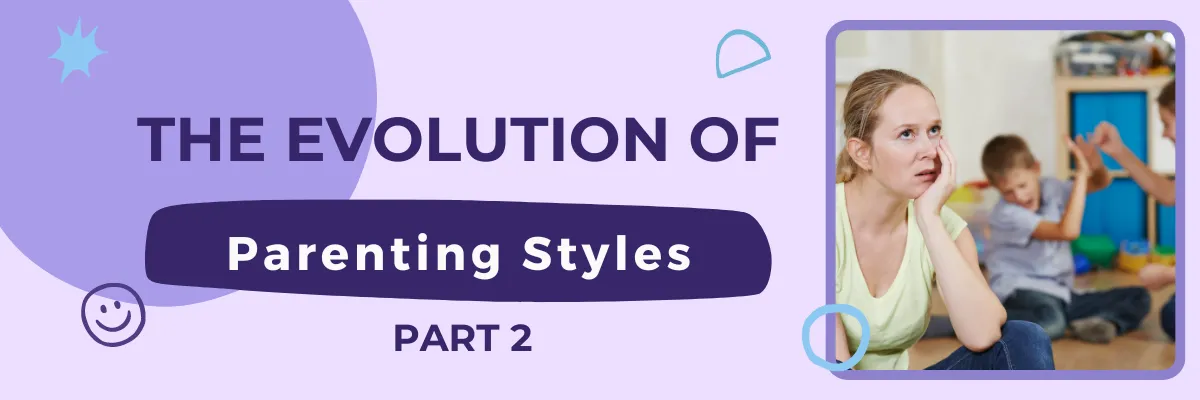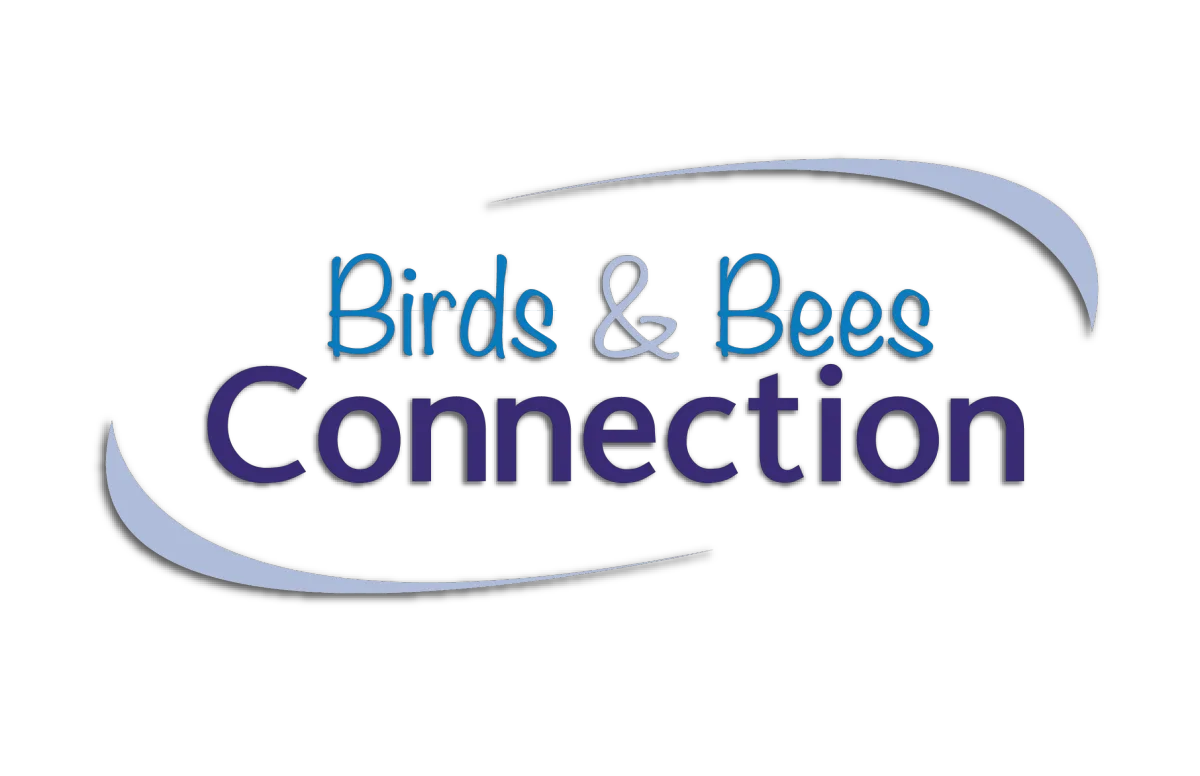
The Evolution Continues: Parenting Styles (Part 2)
Estimated Reading Time: 10 minutes
This blog is a 2-part series where I discuss emerging parenting styles. READ PART 1: 🐝 Exploring the Evolution of Parenting Styles
In Part 1, we took a nostalgic trip down memory lane, revisiting the "classics" that have shaped generations of parents. If you didn't read Part 1 or need a refresher, the four "classic" parenting styles are authoritarian, authoritative, permissive, and neglectful.
Following our exploration in Part 1, we're now venturing into the wild to learn about the different animal names for modern parenting, followed by some mechanical parenting styles.
Curious which parenting approach fits your style? Take our Parenting Style Quiz!
🐝 TAKE THE QUIZ! 🐝

Let’s start with one of the stars of the wild:
THE TIGER
We know the Tiger to be strong, stealthy, and deadly. As a parenting style, Tiger parents tend to be perfectionists and often have a high-pressure, achievement-focused relationship with their children. They may use strict discipline, high expectations, and sometimes even shame or insults to motivate their children. "Tiger" is a more relatable name for authoritarian parenting. You know those parents who seem to have their kids' entire lives planned out before they can even tie their shoes? Yep, that's tiger parenting in action.
KEY TRAITS:
High expectations and pressure to succeed
Harsh criticism for failure
Emphasis on academic and extracurricular achievements
CHILDREN OF TIGER PARENTS often develop strong problem-solving skills, emotional intelligence, and adaptability. They tend to be well-rounded, with a healthy balance of academic achievement and social skills. These children are often more resilient and better equipped to handle life's challenges.

THE DOLPHIN
Picture a playful dolphin, intelligent and social, guiding its pod through the ocean. Dolphin parents aim to strike a perfect balance between support and independence, even though this style aligns closely with the authoritative style. They support their child with their education and other choices without pressuring them or punishing them too harshly. They aim to build a good bond so their child feels they can make mistakes and come to their parents for support. Dr. Shimi Kang, author of "The Dolphin Parent," describes the key traits as:
KEY TRAITS:
Supportive without being overbearing
Balancing guidance with independence
Focusing on 21st-century skills: creativity, communication, collaboration, and critical thinking
CHILDREN OF DOLPHIN PARENTS often develop strong problem-solving skills, emotional intelligence, and adaptability. They tend to be well-rounded, with a healthy balance of academic achievement and social skills. These children are often more resilient and better equipped to handle life's challenges.

THE JELLYFISH
We’ll continue in the ocean with the jellyfish parent, also known as the permissive parenting style. This style of parenting is the direct opposite of authoritarian parenting, often avoiding conflict and giving in to their children's demands to keep them happy. Floating along with the current, jellyfish parents embody the permissive style. They're all about avoiding conflict and keeping their children happy. While this approach might seem peaceful, it can leave children struggling with emotional regulation and decision-making.
KEY TRAITS:
Avoid upsetting their children at all costs
Often give in to their kids' demands
Provide high warmth but little control or structure
Drawing on the latest neuroscience and behavioral research, Dr. Kang transcends cultural limits and shows why authoritarian “tiger parents” and permissive “jellyfish parents” hinder self-motivation.
CHILDREN OF JELLYFISH PARENTS may struggle with self-discipline and emotional regulation. They might have difficulty respecting authority and following rules in structured environments. However, they may also be creative and free-spirited, though potentially lacking in direction or motivation.

THE ELEPHANT
Let’s leave the ocean and return to the wild with the Elephant Parenting Style. Elephant parenting is a style grounded in the belief that children need to be nurtured and protected, especially during their younger years, notes Dr. Robyn Silverman. Elephants are close to the opposite of “tiger parenting,” which places a high value on independence and academic and athletic success. Elephant parents believe in nurturing and protecting their children, especially in the early years. Elephant parents, while not directly tied to a traditional style, share some similarities with the authoritative approach.
KEY TRAITS:
Prioritize nurturing and protection, especially in early years
Place less emphasis on academic or athletic success
Focus on emotional security and family bonds
CHILDREN OF ELEPHANT PARENTS often develop strong emotional intelligence and secure attachments. They may be empathetic and socially adept but might struggle in highly competitive environments. These children tend to have a strong sense of family and community.

THE HUMMINGBIRD
There is one more parenting style in the animal species, the hummingbird. It is a tuned-down version of the now-famous helicopter parent, which is more visual. The hummingbird parent watches over their children but meddles less in their decisions. They tend not to shield them from failure, yet stay physically (or psychologically) close by if needed. This encapsulates authoritative parenting in many ways today—a healthy mix of dependency and independence.
KEY TRAITS:
Watchful but less intrusive than helicopter parents
Allow children to experience some failures
Provide support when truly needed
Hummingbird parents strike a balance between dependency and independence, embodying many positive aspects of authoritative parenting.
CHILDREN OF HUMMINGBIRD PARENTS ften develop good problem-solving skills and independence. They may be more confident in their abilities and resilient in the face of challenges. These children tend to have a healthy balance of self-reliance and the ability to seek help when needed.

THE SNOWPLOW
Next, we have the snowplow or bulldozer parenting style. A snowplow parent is a parent who removes obstacles from their child's life to prevent problems and ensure success. This parenting style is also known as lawnmower or bulldozer parenting. They may look into the future and identify ways things could go wrong so they won’t experience pain, discomfort, or failure.
The term was popularized by The New York Times article referring to the "Operation Varsity Blues" college admissions scandal in 2019. "The media has us believe that our children are in peril all the time, with danger approaching from all sides," says Jessica Lahey, author of The Gift of Failure: How the Best Parents Learn to Let Go So Their Children Can Succeed. "This simply isn't true. This is one of the safest periods in history to be a child from a violent crime perspective. The media overhypes very remote, potential dangers to our children."
KEY TRAITS:
Proactively remove obstacles from their child's path
Highly involved in problem-solving
May inadvertently hinder the development of resilience and independence
CHILDREN OF SNOWPLOW PARENTS might struggle with independence and problem-solving skills. They may have difficulty coping with failure or adversity and might lack resilience. However, they may also feel very supported and confident in pursuing their goals, knowing they have a strong parental safety net.
"Thanks to technology, it is much easier to be a snowplow parent now than it was in the past—it is easy for a parent to send a quick email complaint to their child's teacher," says Dr. Damon Korb, a developmental-behavioral pediatrician in Los Gatos, California, and author of the book Raising an Organized Child.

THE BENIGN
When I first read about this form of parenting, it was equated with the fourth parenting style, neglectful. It raised concerns for me, but the more I read, the more I understood the nuances. The modern term is benign. It’s a parenting style that involves being hands-off and allowing children to be independent and creative. It's the opposite of helicopter parenting, characterized by over-involvement in children's lives.
KEY TRAITS:
Hands-off, allowing children to be independent and creative
Encourages autonomy and problem-solving skills
Balances freedom with appropriate support
CHILDREN OF BENIGN PARENTS often develop strong independence and creative problem-solving skills. They may be highly self-reliant and confident in their abilities. However, they might also struggle in highly structured environments or with tasks requiring close guidance.
The goal of benign neglect is to help children develop a sense of autonomy, foster self-determination, and encourage them to explore, make choices, and solve problems independently. It’s not to say that it’s totally hands-off; it just means that this form of parenting allows the freedom to develop into their own person without a parent hovering over them.
I have a friend who is a benign parent. I realize it’s not for everyone, but I have to say I love watching how amazing her children have turned out. They are creative, independent, and responsible young women. She has two girls who fit into their boxes, and it looks perfect on them. My girlfriend smiles a lot, watching her two girls evolve into the young women they’ll become.

It's true - parenting styles have evolved.
Parenting is the most challenging experience. Your children do not come with instructions, and unlike driving a car, there aren’t any tests you have to take. All it entails is an egg and sperm. But the irony is that there is nothing like being a parent and watching the adults they will grow up to be.
There is this quote by the poet Kahlil Gibran, “Your children are not your children. They are the sons and daughters of Life's longing for itself. They come through you but not from you, And though they are with you, they belong not to you.”
I want to stress that this blog was about inquiry and information—the modern styles of parenting. My hope is that this blog gave you some food for thought and was informative.
👇 👇 👇 👇 👇

🐝 TAKE THE QUIZ! 🐝
Don't miss a beat! Join our email list 🐝
Subscribe for monthly newsletters, blogs, referral perks, and more.
It's free to join and you can unsubscribe at any time.
🐝 Contact Leslie
(949) 394-1556
leslie@leslie-dixon.com
Cancellation Policy:
We require a minimum of 48 hours notice if you cannot attend a scheduled class.
Refunds are not offered. If you do cancel within the notice period, you will receive a class credit that can be applied towards a future class, including hosting a class or an Open to the Public class.


